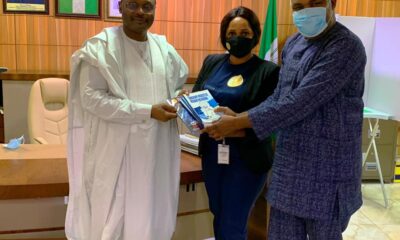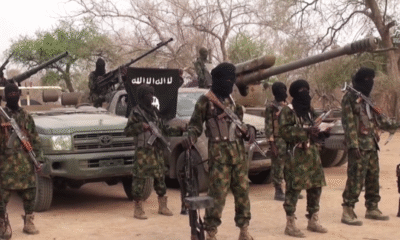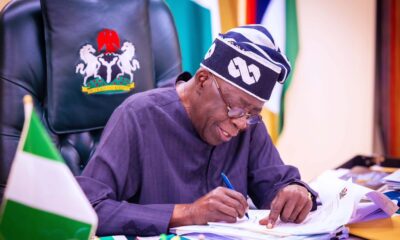News
Inside NDLEA’s Operation ‘Mkpochapu’ |BY EMMANUEL NNADOZIE ONWUBIKO
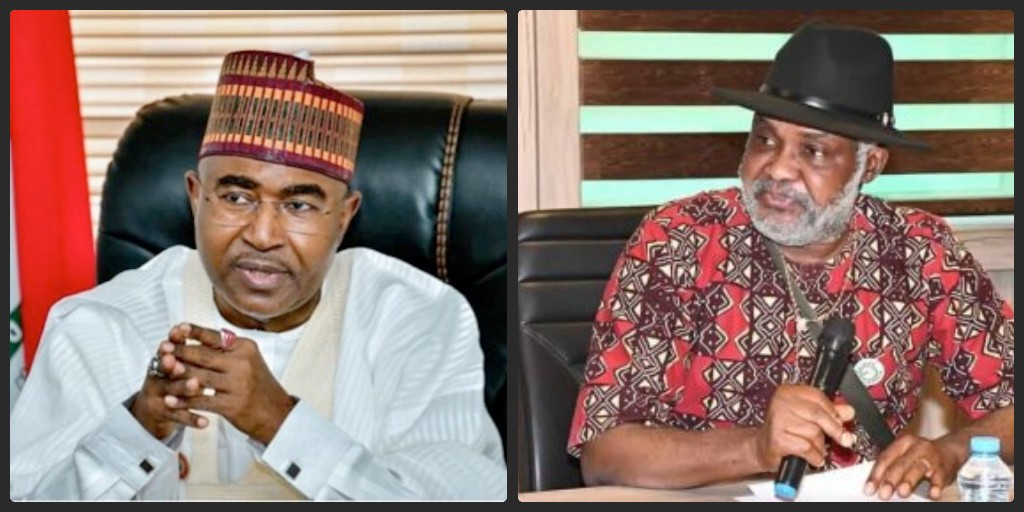
“An unexamined life is not worth living”. SOCRATES.
There is an old Igbo saying: when a mother insists on order in her home, peace returns.
In Igbo philosophy, “mkpochapu” means meticulous house-cleaning — not a quick, polite sweep, but a thorough, uncompromising purification. It is the determined act of removing not only the visible dirt but the hidden grime, the stubborn stains, and the very source of infestation. It is an ethic that springs from the quiet authority of elders: sweeping out the old grime of dishonesty, uprooting the weeds of indiscipline, and restoring integrity to the very foundation.
Applied to the state, the home becomes the nation; and applied to the National Drug Law Enforcement Agency (NDLEA) under Brig.-Gen. Buba Marwa, it becomes a clinical offensive against the narcotics entrenchment in Nigeria.
Mkpochapu is not a light sweep with a broom; it is ritual, method, and insistence. It is the refusal to live under the slow corrosion of accepted filth. When Marwa took the helm of the NDLEA in January 2021, the country’s drug problem was more than a law-and-order issue; it was a structural rot — a house with termites eating at its beams. Marwa did not enter with fanfare about “new beginnings” or mere promises of reform. He entered with the broom, the bucket, and the resolve of one who intends to cleanse every room.
From the beginning, it was clear he was not interested in cosmetic solutions. He did not target only the low-level peddlers that previous sweeps had caught for public show. Instead, the NDLEA under his watch turned its gaze to the so-called untouchables — the barons with powerful connections, the shadowy financiers, and the socially embedded cartels whose roots had been allowed to deepen over decades. The message was blunt: no one, however protected or adorned in influence, was beyond the reach of the broom.
This is mkpochapu in its purest form — not a public relations mission, but a moral one. In the Igbo home, when the compound is overrun with weeds, you do not merely trim the leaves; you uproot the plants, shake out the soil, and burn the roots. In NDLEA’s strategy, that house is Nigeria; the weeds are the drug syndicates; the corners are airports, seaports, land borders, markets, warehouses, worship centres — even holy shrines.
To call what has unfolded since then merely an “anti-drug campaign” is true but incomplete. The agency adopted, and has sustained, a mode of governance — institutional purification. This work is not primarily about theatrical arrests or sensational press conferences. It is about a philosophy that treats drug trafficking as a sickness of the house — a domestic invasion that requires, first, courage and, second, a meticulous refusal to ignore the corners where the rot hides.
That refusal changed where the NDLEA looked. Traffickers once thrived in blind spots: ceremonial routes, religious pilgrimages, courier consignments, maritime grey zones, and the facades of philanthropy and legitimate commerce. Once NDLEA began applying sustained intelligence, high-tech screening, inter-agency cooperation, and targeted interdictions, those blind spots began to shrink. The result has been a series of seizures and arrests that once seemed impossible.
Some cases have shocked the conscience. In Lagos and Abuja airports, operatives intercepted couriers bound for the Holy Lands carrying cocaine hidden inside Bibles and Qur’ans — the most sacred texts desecrated into smuggling tools. Others were arrested having ingested dozens of pellets of cocaine or heroin before boarding flights for religious pilgrimages. The grotesque imagery is hard to overstate: faith weaponised as camouflage for poison. In mkpochapu terms, the cleaner must sweep even the altar.
Equally startling were cases involving Nigerians attempting to smuggle massive quantities of cocaine into Iran — at a time when the Middle East was fraught with geopolitical tensions, and Iran itself faced bombardment threats from Israel and the United States. These traffickers, whether ignorant or indifferent to the risks, were willing to use such dangerous corridors for their trade. Intercepting them was more than an arrest; it was a disruption of a network that could have deepened Nigeria’s entanglement in volatile transnational crime rings.
The NDLEA also reinforced the doorways and windows — the nation’s ports, airports, and maritime domain. By upgrading the marine unit into a full-fledged Marine Command, the agency acknowledged that Nigeria’s long coastline had become a porous artery for trafficking. This was not a vanity reform; it was a structural seal. The result has been sustained maritime interceptions, from large cannabis shipments off the Lagos coast to multi-ton cocaine seizures in deepwater operations. In mkpochapu, you don’t just sweep the floor; you close the holes that let in the rats.
The clean-up has been unapologetically frontal. NDLEA has not stopped at couriers; it has gone for the infrastructure that sustains them: the bank accounts, warehouses, transport fleets, and real estate holdings that form the backbone of the trade. In one case, dozens of bank accounts linked to a suspected kingpin were frozen, choking the financial oxygen that allowed him to operate. This is textbook mkpochapu — removing not just the dirt but the containers that store it.
Cleaning also requires moral discipline from the cleaners themselves. Marwa has repeatedly warned NDLEA operatives against compromise, knowing that a corrupt cleaner will simply push dirt from one corner to another. Under his leadership, the agency has emphasised training, internal surveillance, and swift disciplinary measures for misconduct. The broom must remain clean, or the entire exercise is pointless.
But mkpochapu is not only coercive; it is curative. Sweeping away the filth without changing habits merely resets the cycle. That is why NDLEA has paired enforcement with rehabilitation and prevention: community outreach, drug education in schools, counselling centres, and treatment facilities. In the Igbo home, cleaning day is also a lesson for the children — they learn why you keep the house clean, not just how.
Of course, this scale of purification comes with tensions. Public scepticism shadows any institution with expanded powers. People ask: Are seized consignments fully accounted for? Do prosecutions follow due process? Such questions, far from being inconvenient, are essential to the integrity of mkpochapu. For a house to remain clean, its occupants must trust the one holding the broom.
Meanwhile, traffickers adapt. They invent new concealments, exploit conflict zones, and pivot to emerging markets. The recent spate of arrests involving synthetic opioids, concealed within seemingly harmless shipments like food seasoning or baby formula, demonstrates this constant evolution. In mkpochapu terms, the cleaner must inspect even sealed jars.
Success, under this philosophy, is not just counted in tonnes seized. It is measured in the erosion of trade routes, the collapse of once-untouchable empires, the abandonment of cultivation areas for illicit crops, and the weakening of street-level drug economies. It is when the neighbours stop whispering about who “owns” the street corner, and when communities reclaim their spaces for legitimate life.
There is also a deeper moral politics here. Mkpochapu asks society to reject the narcotics trade’s seductive myths — that illicit wealth is quick, that influence trumps legality, that spiritual cover can sanctify crime. These stories thrive in silence. By confronting them publicly and persistently, NDLEA reaffirms the civic truth: sanctity does not excuse lawlessness, and no corner is exempt from the broom.
Cleaning is never a solo job. Customs, immigration, the navy, police, and international partners must all be part of the sweep. Under Marwa, cooperation with agencies like INTERPOL, the DEA, and neighbouring countries’ anti-narcotics units has strengthened. Intelligence is shared faster, joint operations are more frequent, and extraditions are pursued with renewed vigour. In house-cleaning terms, this is inviting the neighbours to help you block the drainage so the dirt does not flow back in.
Ultimately, a cleansed house must feel different to its occupants. Streets become safer, addicts find help instead of handcuffs, and young people see real alternatives to the drug trade. Without that, mkpochapu is just an annual ritual. With it, the sweep becomes a transformation.
The lesson is clear: mkpochapu is scalable. The same ethic that governs a clean home can govern a clean nation. It is not triumphalist — it is patient, stubborn, and rooted in a refusal to coexist with rot. The NDLEA’s application of it has not been flawless, but it has shown that a philosophy, when paired with tools and courage, can change the texture of national life.
When the Igbo mother finishes cleaning, she does not boast about the size of the dustpan. She looks around to see if her family’s habits have changed, if the windows are sealed, if the vermin have nowhere to hide. In that moment, she knows the work has been worth it.
Operation Mkpochapu, in this sense, is not just NDLEA’s project — it is Nigeria’s. If the nation keeps to it, the house will not only be clean; it will stay that way. If a nation is a home, its purity reflects the integrity of its people and institutions.
NDLEA’s Mkpochapu concept affirms that evil can be swept away, that broken habits can be mended, and that a house, once clean, stands tall — not in empty bravado, but in the quiet strength that comes from restored order and honour.
Emmanuel Nnadozie Onwubiko, Founder of HUMAN RIGHTS WRITERS ASSOCIATION OF NIGERIA (HURIWA), was a NATIONAL COMMISSIONER AT THE NATIONAL HUMAN RIGHTS COMMISSION OF NIGERIA.
News
ARISE News Anchor Somtochukwu Maduagwu Found Dead Following Abuja Robbery, Reports FCTA

The Federal Capital Territory Administration (FCTA) has confirmed that Somtochukwu Maduagwu was brought to Maitama Hospital without vital signs after a robbery incident at her home in Abuja.
Dr. Dolapo Fasawe, the Mandate Secretary on Health for the FCTA, stated that ARISE News anchor Somtochukwu Maduagwu was pronounced dead upon arrival at Maitama General Hospital at approximately 4:30 am on Monday. This clarification was issued via a statement from the FCTA, aimed at addressing earlier claims that medical negligence contributed to her demise following the robbery.
Somtochukwu Christelle Maduagwu, affectionately known as Sommie, was a 29-year-old journalist tragically killed during an armed robbery at her Katampe residence in Abuja in the early hours of Monday, September 29, 2025.
Residents of the apartment complex reported that the attack transpired around 3 a.m. when over 15 armed robbers invaded the 16-apartment building. Witnesses indicated that security personnel sounded the alarm and tried to reach the police, but there was no immediate response. Sommie and a security guard, who also sustained injuries during the incident, were promptly taken to Maitama District Hospital. However, family members claimed they were denied urgent treatment due to not having identification documents readily available. Both victims later succumbed to their injuries.
In the meantime, FCT Minister Nyesom Wike expressed his condolences to the management and staff of ARISE News Channel regarding the unfortunate demise of Somtochukwu Maduagwu. He described her death as both tragic and painful, and he prayed for God’s continued support for the staff of ARISE News, particularly for the Chairman, Prince Nduka Obaigbena, and for the family and friends of the late journalist. The minister noted that a preliminary medical report would be provided to the police to assist in their investigation, emphasizing that all necessary steps would be taken to uncover the details surrounding her death. He reassured the family, friends, and colleagues of Somtochukwu Maduagwu that the police are committed to discovering the circumstances of her passing and ensuring that those responsible face justice.
Source: ARISE TV
News
Negotiations With Terrorists Undermine Elements Of Nigeria’s Statehood: HURIWA says

Pro-democracy and civil rights advocacy group HUMAN RIGHTS WRITERS ASSOCIATION OF NIGERIA (HURIWA) has condemned the Federal government for permitting some states in the North-west to negotiate the so-called peace agreement with terrorists, criminal gangs and armed kidnappers, just as the Rights group said the negotiations have undermined and eroded the key elements of Nigeria’s statehood.
HURIWA blames the ambiguities of the Federal government on how to deal decisively with armed brutes killing thousands of Nigerians for the expanding frontiers of terrorist attacks and the unprecedented insecurity in many parts of Nigeria. “Since the Federal Government is creating the impression that it is open to dialogue with terrorists, then more and more desperate criminals would escalate their criminal activities, hoping that they too would merit an invitation for dialogue by the current administration that is already discussing with terrorists in the North West for the so-called peace.
Criminal gang members who are watching the dialogue sessions with terrorists in the North West will automatically become daring and bloody so as to gain attention of the government that is too weak to militarily defeat terrorists and very willing to enter into negotiations for the so-called truce.”
HURIWA which expressed the position that any public office holder or private individual who negotiates with terrorists is also a terrorist, has therefore called on President Bola Ahmed Tinubu to stop the disgraceful surrendering of the Nigerian state to the whims and caprices of a motley crowd of armed bandits, bloodstained terrorists, armed kidnappers and criminal gangs in Katsina and some other states in the Northern States of Nigeria.
HURIWA said there is no doubt that what have played out in the last couple of weeks in Katsina, Zamfara and other places in the North West of Nigeria in the guise of local and state governments negotiating with terrorists for the so-called truce, amounted to the demolition of the four fundamental elements that qualifies Nigeria as a Sovereignty even as HURIWA postulated that the state as a person of international law should possess the following qualifications: (a) a permanent population (people); (b) a defined territory; (c) government (political authority); and (d) capacity to enter into relations with the other states (diplomat recognition or sovereignty).
HURIWA which condemned the negotiations with terrorists, said the impression being created globally with these charades going on in Katsina by way of negotiations for peace with terrorists responsible for killings of dozens of citizens is that Nigeria has gradually lost those key elements of statehood. HURIWA also stated that the negotiations have completely rubbished the determination of the families of victims of terrorism from achieving any sort of closure and justice for the terminations of the lives of their loved ones and the losses of livelihoods they suffered as a result of terrorist attacks.
HURIWA asked rhetorically thus: “Is it not preposterous that whilst the president Tinubu’s government has sanctioned negotiations with terrorists that are wanted by advanced and sophisticated nations such as the United States, the same administration sent out the Vice President Kashim Shettima to the United Nations General Assembly in New York to canvass that Nigeria be made a permanent member of the security council of the United Nations?
“Is this not a pathetic irony to openly demonstrate to the World that Nigeria’s statehood is eroding fast, as demonstrated by the show of shame called peaceful negotiations with terrorists who attended the so-called truce meetings in Katsina state, wielding some of the most sophisticated weapons of mass destruction and other combat weapons of military grades?
Has this government in Nigeria no shame and has the government no respect for the constitution of the Federal Republic of Nigeria? We insist that terrorists must be made to face the full wrath of justice, just as we believe that government is obliged to take justice to terrorists or bring terrorists to justice for their crimes of bloodshed and destruction of livelihoods of Nigerians.
HURIWA recalled that authorities in Nigeria’s northwestern Katsina state reportedly struck a so-called peace deal with criminal gangs in what it says is an effort to end years of violence, a government official confirmed to the media.
HURIWA recalled that Katsina is one of several states in northwestern and central Nigeria terrorized by criminal gangs that the locals refer to as bandits. The federal government, through the Defence Headquarters, had previously declared the leaders of the terrorists groups now negotiating with government as terrorists, even as huge amounts of money was promised as rewards for information leading to their arrests.
HURIWA wondered the logic in negotiating with criminal gangs that continuously raid villages, rape girls and children, kill and abduct residents, as well as torch homes after looting them.
HURIWA recalled that the terrorists and criminal gangs maintain camps in a huge forest straddling Zamfara, Katsina, Kaduna states in the northwest region and Niger state in the country’s central zone and have carried out mass kidnappings of students from schools in recent years.
HURIWA recalled that the Katsina State Government confirmed that a dozen bandit kingpins met with local officials and community leaders in the town of Danmusa, where they renounced violence and pledged to turn a new leaf, Nasiru Mu’azu, Katsina state internal commissioner said.
“There was a peace meeting between 12 bandit leaders and the local community leaders in Danmusa, where the bandits renounced their criminal activities and committed to peace,” Mu’azu said.
The bandits initiated the meeting, he said. “The community welcomed the overtures and agreed to a peace deal as long as the bandits are genuinely interested in peace,” he said.
Katsina state government stated that as a mark of goodwill, the bandits surrendered weapons and released 17 hostages, with the promise to free more people they were holding.
HURIWA said security experts have cautioned against any sort of appeasement of terrorists because, as criminals with zero ideological leaning, the bandits are motivated by financial gains, but their increasing business and operational alliance with jihadists from the northeast has been raising concern among government officials, which is the reason for the illegal negotiations with terrorists.
HURIWA pointed out that in 2023, Katsina state governor Dikko Umar Radda established Katsina Community Watch Corps, comprising around 2,000 vigilantes to assist the military and police in fighting the bandits.
“We have been fighting the bandits for the past two years, and the state governor has reiterated he will not negotiate from a position of weakness,” Mu’azu, the Katsina state official said.
In the media statement by the National Coordinator, Comrade Emmanuel Nnadozie Onwubiko, HURIWA reiterated its position of zero tolerance for any sort of negotiations with terrorists because that would amount to state surrender.
“We are asking President Tinubu to stop these acts of treason in the name of negotiations with terrorists. We believe that no matter the quantum of cash paid out to these terrorists now dialoguing with Katsina and other Northern governments, the moment the blood money finishes, these terrorists who are already used to making hundreds of millions of blood money will simply return to their familiar terrains of terrorism and when they do return, they would be even more vicious than they are now.”
COMRADE EMMANUEL NNADOZIE ONWUBIKO,
NATIONAL COORDINATOR,
HUMAN RIGHTS WRITERS ASSOCIATION OF NIGERIA (HURIWA).
MONDAY SEPTEMBER 29TH 2025.
News
Corruption Becoming Endemic Now: HURIWA Says
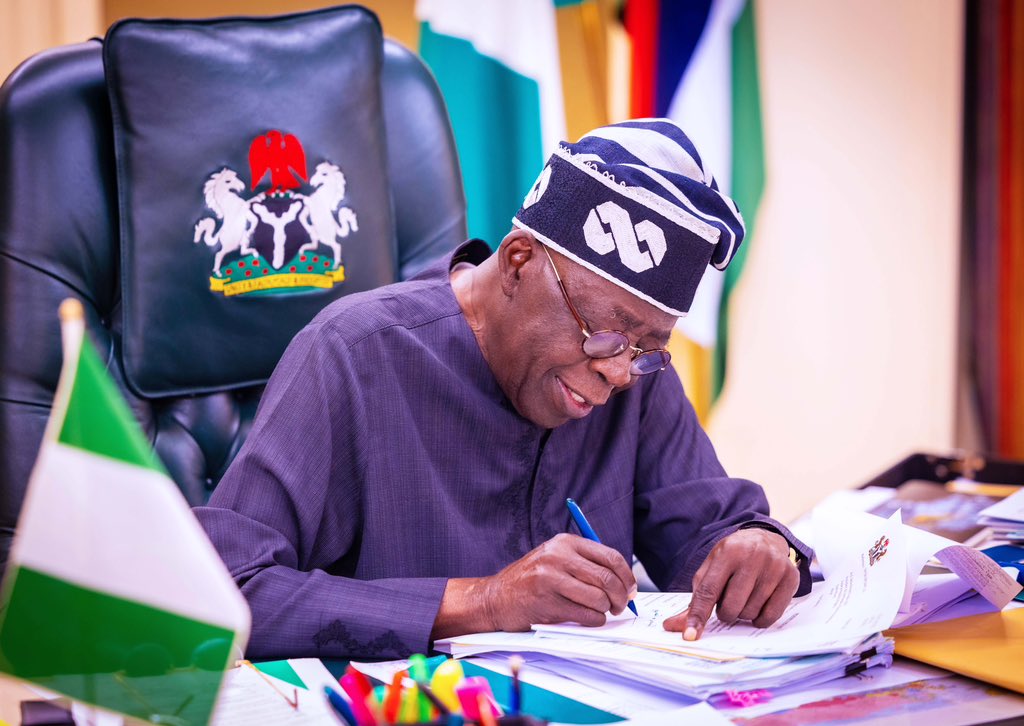
TASKS government on transparency in conditional cash transfer
Civil Rights advocacy Group HUMAN RIGHTS WRITERS ASSOCIATION OF NIGERIA (HURIWA) has expressed worry about the apparent inability of the Federal government to come clean on how N330 billion was disbursed to 8.1 million households without any compliance with the principles of transparency and accountability. “Most Nigerians are wondering whether this huge sum of public funds were shared to ghosts or to real citizens since these households are not known by millions of Nigerians.”
Besides, HURIWA has raised alarm that corruption is perceived to be so high within the government circles even as the Rights group said it was wrong for President Tinubu to keep silent in the face of mounting accusations of corruption affecting some of his appointees including the allegations of acquisitions of exotic housing assets by the Minister of the Federal capital territory Mr. Nyesom Wike with allegedly looted public funds.
HURIWA recalled that the federal Government had few days ago, announced that it has disbursed a total of N330bn to 8.1 million households across the country under the National Social Safety Net Programme, aimed at cushioning the harsh effects of economic reforms on Nigeria’s poorest and most vulnerable citizens.
The disclosure was made in Abuja by the Minister of Finance and Coordinating Minister of the Economy, Wale Edun, after a review meeting of the Special Presidential Panel on Social Investment, inaugurated by President Bola Tinubu in February.
Edun explained that the programme, which experienced delays earlier in the year, was now firmly back on track following the successful integration of biometric data through the National Identification Number. This integration, he said, was crucial to ensuring transparency, curbing leakages, and eliminating political interference.
According to the minister, out of the 19.7 million households captured in the National Social Register—representing about 70 million Nigerians—8.1 million households have already received at least one tranche of the N25,000 stipend. Some beneficiaries have received two or three payments depending on verification outcomes.
Reacting to the widespread failure of the Federal Government to evidently show believable proof of how this humongous cash were disbursed and to clearly publicise the identities of these beneficiaries, HURIWA said it is shocking that a democratically elected government put in place by the people, could come up with such seemingly phantom claim to have distributed financial lifelines to some impoverished citizens without any concrete evidence.
In a media statement by the National Coordinator Comrade Emmanuel Onwubiko, HURIWA criticised the federal ministry of Finance and the Coordinating ministry for the Nigerian economy for issuing out the press statement making the claim that can’t be empirically verified just as the Rights group said over ten thousand members of the organisation spread across the Country has not reported knowing or hearing about any Nigerian poor citizens/households who benefitted from the cash redistribution by the federal government.
“We are challenging the Federal Ministry of Finance and the Coordinating Minister of the Economy to prove to Nigerians that his ministry paid out the sum of N330 bn to 8.1 million households by publishing on the website of the ministry and newspapers the identities of the beneficiaries, their locations and the number in each of the benefiting states or local government areas. This demand is made in good faith because we have been unable to see or know anyone out of this 8.1 million households that got the N25,000. As citizens of Nigeria, we are entitled to be adequately informed because the methodology said to have been adopted by the government in redistribution of this taxpayers’ money is opaque and lacks ingredients of transparency and accountability.”
HURIWA is also urging President Bola Ahmed Tinubu to speak up about the growing accusations of corruption against some of his cabinet-level appointees one of which is the minister of the FCT.
HURIWA recalled that former presidential candidate of the African Action Congress (AAC) in the 2023 election, Omoyele Sowore, had petitioned the Attorney-General of Florida, James Uthmeier, demanding the forfeiture and prosecution of alleged multi-million-dollar properties secretly acquired in the United States by the Minister of the Federal Capital Territory, Ezenwo Nyesom Wike.
In a petition signed by his counsel, Deji Adeyanju, dated September 22, Sowore alleged that Wike, alongside his wife, Justice Eberechi Suzzette Nyesom-Wike of the Nigerian Court of Appeal, unlawfully purchased three lakeside properties in Winter Springs, Florida, worth over $6m.
The petition claimed the acquisitions were “conducted entirely in cash, thereby circumventing banking oversight and raising significant money laundering concerns.”
According to the documents, the properties include 113 Springcreek Lane, purchased for $535,000 and transferred to Jordan Wike; 209 Hertherwood Court, purchased for $459,157 and transferred to Joaquin Wike; and 208 Hertherwood Court, purchased for $465,000 and transferred to Jazmyne Wike.
The petition stressed that Wike, “a career politician with no record of legitimate private enterprise,” could not have earned the income to fund such acquisitions, adding that the assets were not declared to Nigeria’s Code of Conduct Bureau in violation of constitutional obligations.
Sowore, in his petition, stated that, “The evident pattern in this case involves large cash acquisitions by a long-serving public officer with no legitimate private earnings, the immediate transfer of title to his children, and the concealment of true beneficial ownership.
HURIWA said: “Whilst we await the decision of the foreign entity regarding the petition said to have been sent to them, accusing the minister of FCT of illegally buying up juicy housing assets in the USA using allegedly looted public funds. But we expect that when such a very weighty accusations are made consistently against a serving minister, the President ought to publicly make a statement regarding what the position of his government is especially given that the President told the World in Brazil that his administration is waging a relentless war against corruption.”
“We know that when accusations of corruption was made by the then minister of Humanitarian Affairs and Poverty Alleviation, President Tinubu suspended and thereafter fired the minister from her duty. Nigerians expect that since nobody is above the law, when accusations of corruption are made against a Nigerian public office holder, the appointing authority is expected to weigh in one way or the other so the citizens are assured of the government’s commitment to the war against corruption. The President should also direct the Minister of Finance to furnish Nigerians with verifiable evidence to prove that government actually disbursed N330 billion to some poor households”.
-

 News10 months ago
News10 months agoNUJ FCT Council Mourns The Loss of Senior Journalist, Isaiah Abraham
-
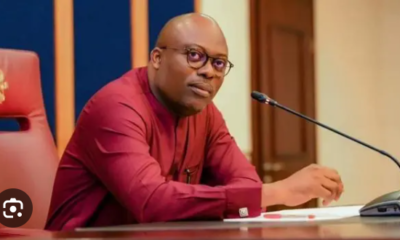
 News10 months ago
News10 months agoHURIWA Declares Governor Fubara’s Emergence as Divine, Urges Support for Rivers State’s Progress
-
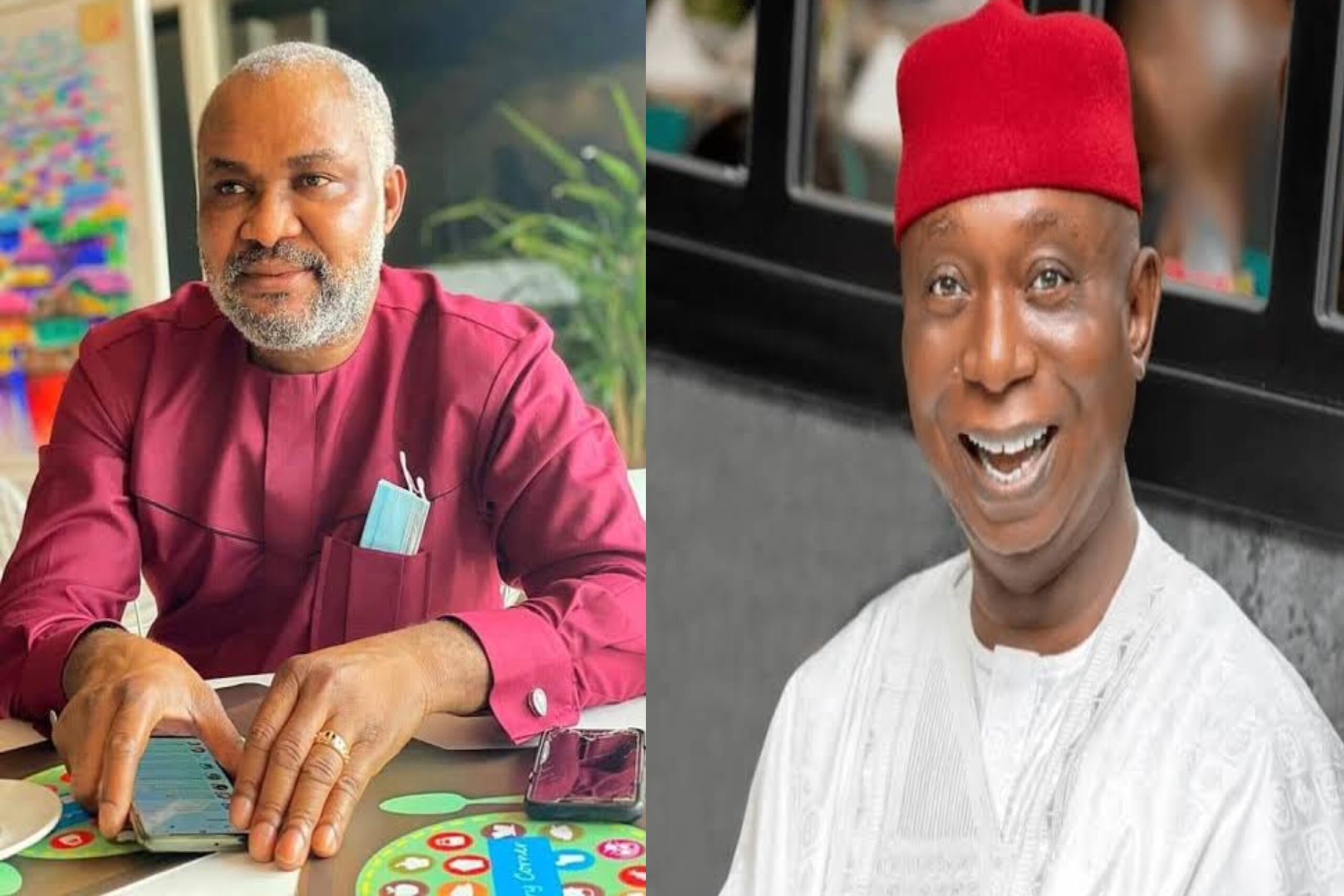
 News10 months ago
News10 months agoAnioma State as panacea to South-East marginalization – By Emmanuel Onwubiko
-

 Opinion8 months ago
Opinion8 months agoNIGERIAN WOMAN IN DIASPORA, CULTURAL SHOCKS – By Stacey Ukaobasi Onwuegbuchulam
-
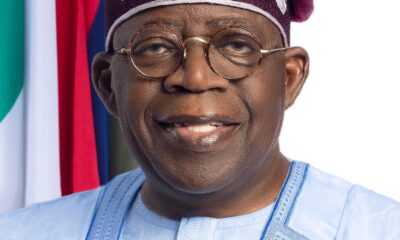
 News11 months ago
News11 months agoHURIWA Blames Serial Stampedes on Weaponized Poverty, Warns of Nigeria’s Rapid Decline
-
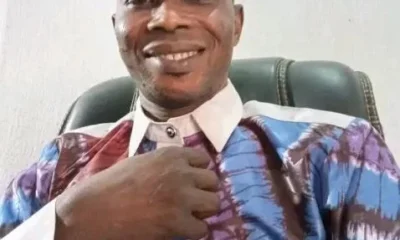
 News10 months ago
News10 months agoJealous Husband Stabs Nigerian Bishop To Death Over Suspicion Of Sleeping With Estranged Wife
-
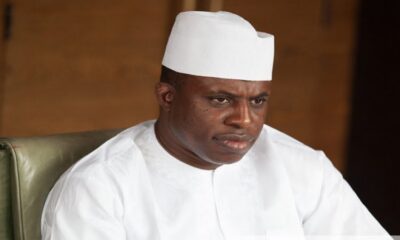
 News10 months ago
News10 months agoTinubu sympathizes with ex-speaker Bankole on the death of his mother
-
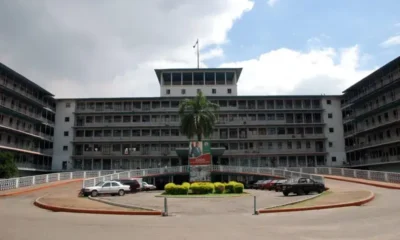
 Health8 months ago
Health8 months agoA complete list of 154 healthcare facilities across Nigeria that provide free emergency obstetric care and VVF (Vesico-Vaginal Fistula) surgeries.


